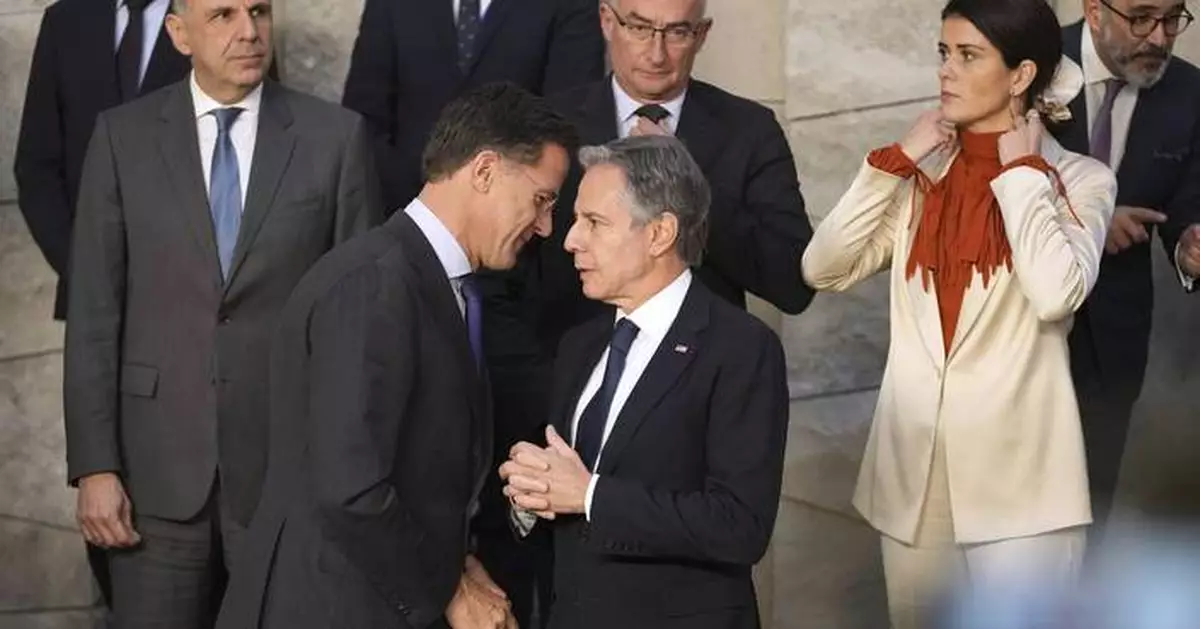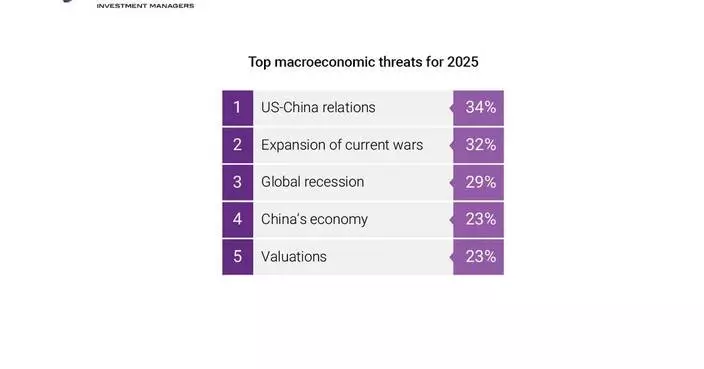BRUSSELS (AP) — NATO Secretary-General Mark Rutte led a fresh push Wednesday for European countries to ramp up defense spending, a budget shortfall that President-elect Donald Trump used to berate U.S. allies during his first term in office, severely damaging trust.
After Russia annexed Ukraine’s Crimean Peninsula a decade ago, NATO leaders agreed to halt the defense cuts that began when the Cold War ended and move toward spending 2% of GDP on their military budgets.
Click to Gallery
United States Secretary of State Antony Blinken, right, joins a group photo of from left, Latvia's Foreign Minister Baiba Braze, Canada's Foreign Minister Melanie Joly, Romania's Foreign Minister Luminita-Teodora Odobescu, Germany's Foreign Minister Annalena Baerbock, Iceland's Foreign Minister Thordis Kolbrun Reykfjord Gylfadottir, Slovenia's Foreign Minister Tanja Fajon, Sweden's Foreign Minister Maria Malmer Stenergard, Finland's Foreign Minister Elina Valtonen and NATO Deputy Secretary General Radmila Shekerinska during a meeting of NATO foreign ministers at NATO headquarters in Brussels, Wednesday, Dec. 4, 2024. (AP Photo/Virginia Mayo)
NATO Secretary General Mark Rutte, right, speaks with Denmark's Foreign Minister Lars Lokke Rasmussen, center, during a meeting of NATO foreign ministers at NATO headquarters in Brussels, Wednesday, Dec. 4, 2024. (AP Photo/Virginia Mayo)
French Foreign Minister Jean-Noel Barrot waits for the start of a meeting of NATO foreign ministers at NATO headquarters in Brussels, Wednesday, Dec. 4, 2024. (AP Photo/Virginia Mayo)
United States Secretary of State Antony Blinken, right, joins a group photo of from left, Latvia's Foreign Minister Baiba Braze, Canada's Foreign Minister Melanie Joly, Romania's Foreign Minister Luminita-Teodora Odobescu, Germany's Foreign Minister Annalena Baerbock, Iceland's Foreign Minister Thordis Kolbrun Reykfjord Gylfadottir, Slovenia's Foreign Minister Tanja Fajon, Sweden's Foreign Minister Maria Malmer Stenergard, Finland's Foreign Minister Elina Valtonen and NATO Deputy Secretary General Radmila Shekerinska during a meeting of NATO foreign ministers at NATO headquarters in Brussels, Wednesday, Dec. 4, 2024. (AP Photo/Virginia Mayo)
British Foreign Secretary David Lammy, left, walks with Turkey's Foreign Minister Hakan Fidan during a meeting of NATO foreign ministers at NATO headquarters in Brussels, Wednesday, Dec. 4, 2024. (AP Photo/Virginia Mayo)
NATO Secretary General Mark Rutte speaks during a media conference at the conclusion of a meeting of NATO foreign ministers at NATO headquarters in Brussels, Wednesday, Dec. 4, 2024. (AP Photo/Virginia Mayo)
United States Secretary of State Antony Blinken speaks during a media conference at the conclusion of a meeting of NATO foreign ministers at NATO headquarters in Brussels, Wednesday, Dec. 4, 2024. (AP Photo/Virginia Mayo)
United States Secretary of State Antony Blinken speaks during a media conference at the conclusion of a meeting of NATO foreign ministers at NATO headquarters in Brussels, Wednesday, Dec. 4, 2024. (AP Photo/Virginia Mayo)
NATO Secretary General Mark Rutte speaks during a media conference at the conclusion of a meeting of NATO foreign ministers at NATO headquarters in Brussels, Wednesday, Dec. 4, 2024. (AP Photo/Virginia Mayo)
NATO foreign ministers pose for a group photo during a meeting of NATO foreign ministers at NATO headquarters in Brussels, Wednesday, Dec. 4, 2024. (AP Photo/Virginia Mayo)
United States Secretary of State Antony Blinken, front center, speaks with NATO Secretary General Mark Rutte during a group photo at a meeting of NATO foreign ministers at NATO headquarters in Brussels, Wednesday, Dec. 4, 2024. (AP Photo/Virginia Mayo)
Since Russia launched its full-fledged invasion almost three years ago, the leaders have agreed that the 2% target should be the floor rather than the ceiling for defense spending. On average, U.S. allies combined meet that figure, but around a third of the members still do not individually.
Trump, who takes office on Jan. 20, threatened not to defend “delinquent” countries. NATO is founded on the principle that an attack on any member must be considered an attack on them all. Trump’s remarks undermined confidence that the U.S. could be counted on in a crisis.
“If you want to keep the deterrence at the present level, 2% is not enough,” Rutte told reporters after chairing a meeting of NATO foreign ministers in Brussels. “We can now defend ourselves and nobody should try to attack us. But I want that to stay the same in 4 or 5 years.”
In July, U.S. President Joe Biden and his NATO counterparts endorsed the biggest shakeup of the way the military alliance would respond to any attack on its territory by Russia since the Cold War. It was meant to deter Moscow from targeting any of the 32 allies.
Under highly secret new plans, NATO intends to have up to 300,000 troops ready to move to its eastern flank within 30 days. The plans lay out which allies would respond to an attack anywhere from the Arctic and Baltic Sea region through the Atlantic and east to the Black Sea.
But senior NATO officials concede that countries might have to spend up to 3% of GDP to execute the security blueprint successfully. A new spending target is likely to be announced next year. Rutte also said NATO might set specific targets for member countries to fill military equipment gaps.
U.K. Foreign Secretary David Lammy insisted that “the time to act is now.”
“We’re living in very dangerous times,” he said, singling out Russia and its role in conflicts in the Middle East and Africa, on top of its war on Ukraine. “We urge all allies across the NATO family to get serious about defense spending.”
On his last visit to Brussels for a NATO meeting, the U.S. Secretary of State Antony Blinken said that “this is a time for every ally to lean in, not lean back.” The United States is by far the organization's most powerful member country.
“A stronger NATO means more capabilities to deter aggression, more effective allies to meet more complex challenges, and the peace and stability that allows our people to pursue fuller lives,” Blinken said.
Rutte also underlined the importance of expanding Europe’s defense industry, with incentives to drive companies to set up more production lines and hire more workers to staff them, as Western support for Ukraine drains armament stocks.
“We are producing not enough at too high prices, and the delivery is too slow,” he said. “We cannot have a situation where we just pay more for the same, and we see large kickbacks to the shareholders.”
Rutte urged the allies “to work closely together to make sure that we produce at a much higher rate and acceptable prices.” He noted “a number of countries who are now buying South Korean (equipment) because our own defense companies are not producing at a rate we need.”
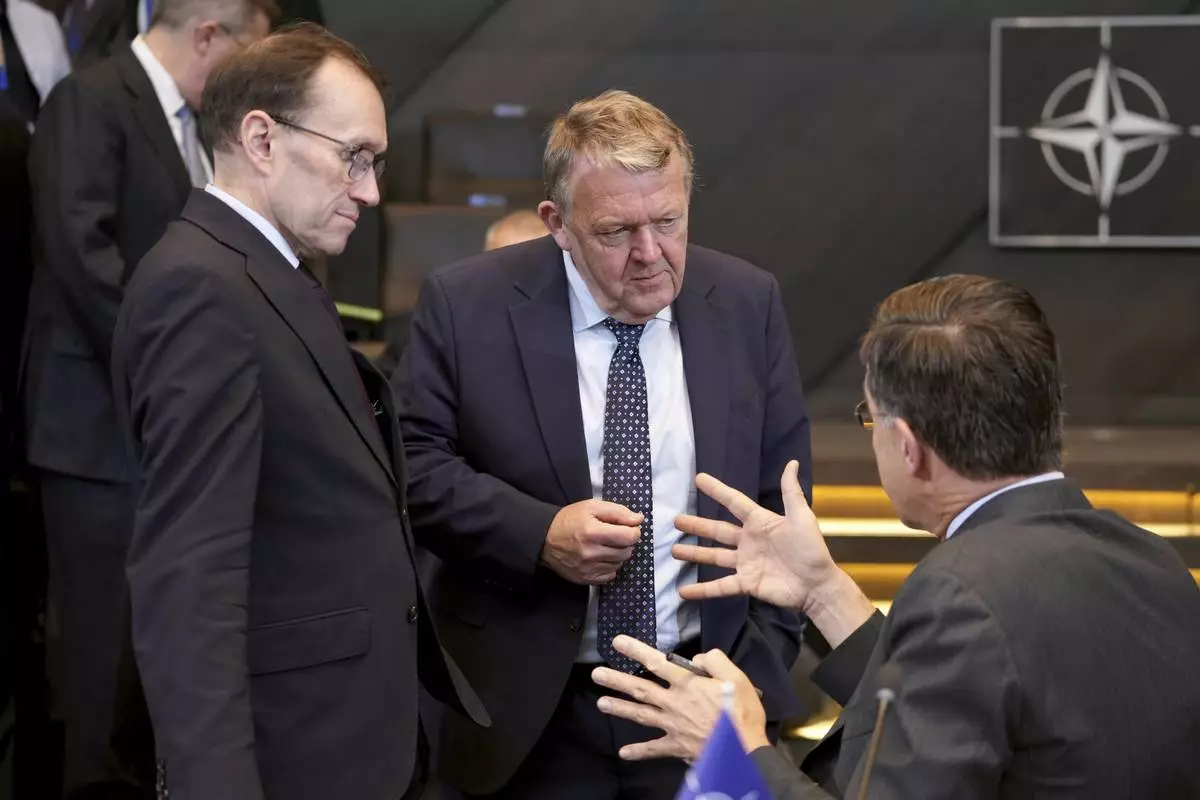
NATO Secretary General Mark Rutte, right, speaks with Denmark's Foreign Minister Lars Lokke Rasmussen, center, during a meeting of NATO foreign ministers at NATO headquarters in Brussels, Wednesday, Dec. 4, 2024. (AP Photo/Virginia Mayo)
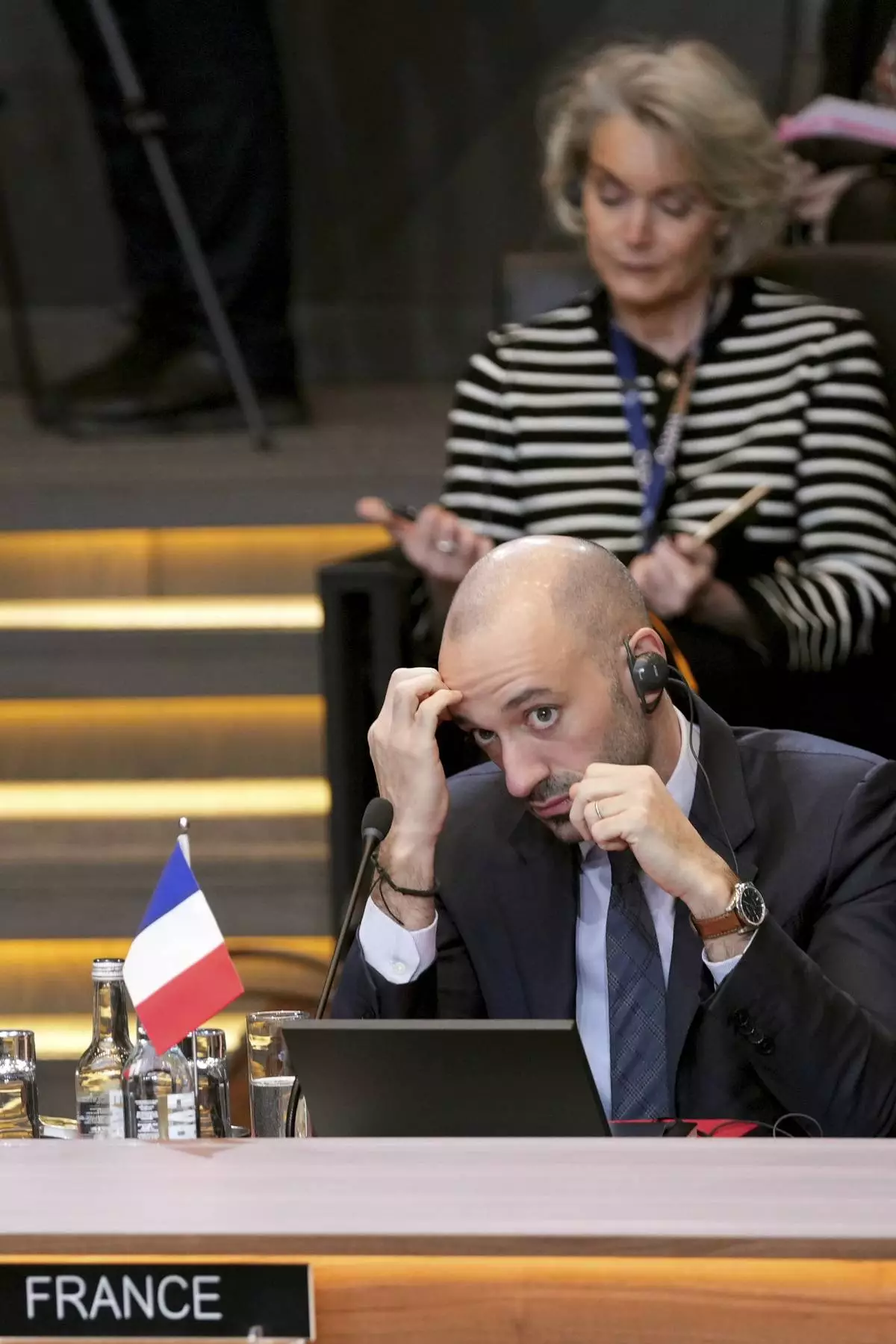
French Foreign Minister Jean-Noel Barrot waits for the start of a meeting of NATO foreign ministers at NATO headquarters in Brussels, Wednesday, Dec. 4, 2024. (AP Photo/Virginia Mayo)
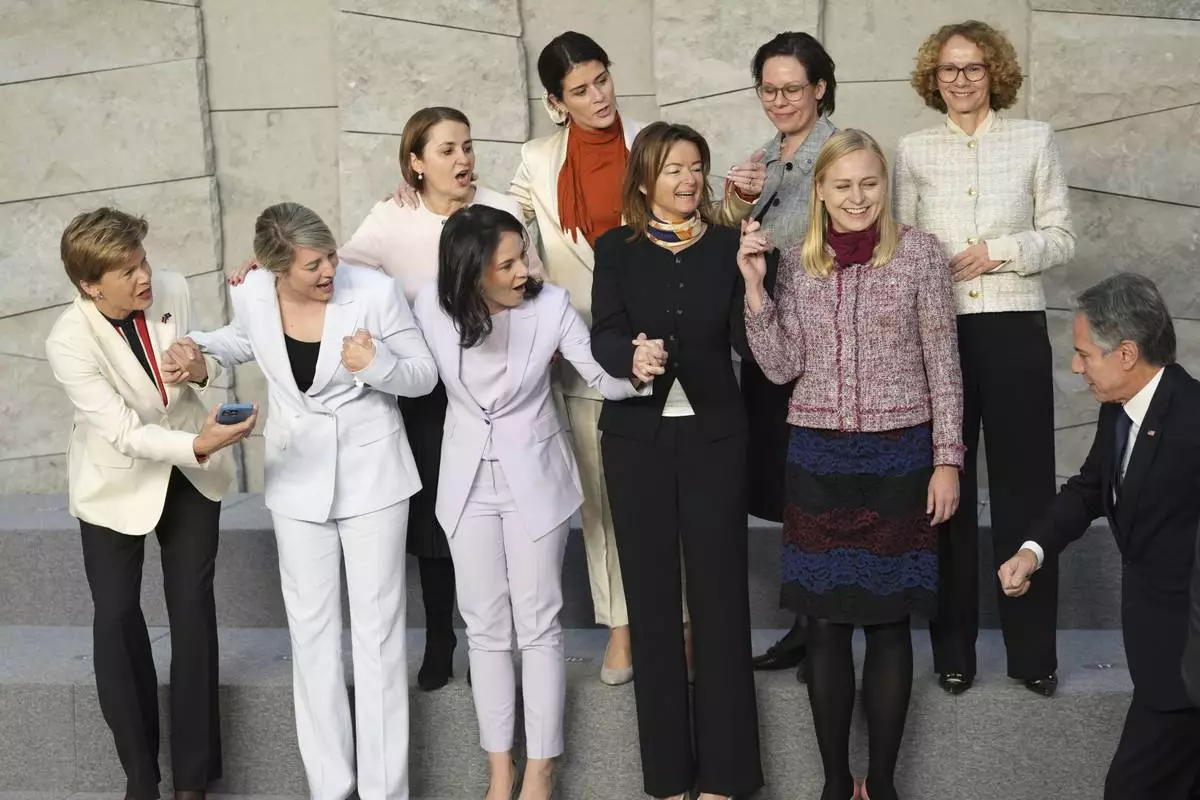
United States Secretary of State Antony Blinken, right, joins a group photo of from left, Latvia's Foreign Minister Baiba Braze, Canada's Foreign Minister Melanie Joly, Romania's Foreign Minister Luminita-Teodora Odobescu, Germany's Foreign Minister Annalena Baerbock, Iceland's Foreign Minister Thordis Kolbrun Reykfjord Gylfadottir, Slovenia's Foreign Minister Tanja Fajon, Sweden's Foreign Minister Maria Malmer Stenergard, Finland's Foreign Minister Elina Valtonen and NATO Deputy Secretary General Radmila Shekerinska during a meeting of NATO foreign ministers at NATO headquarters in Brussels, Wednesday, Dec. 4, 2024. (AP Photo/Virginia Mayo)
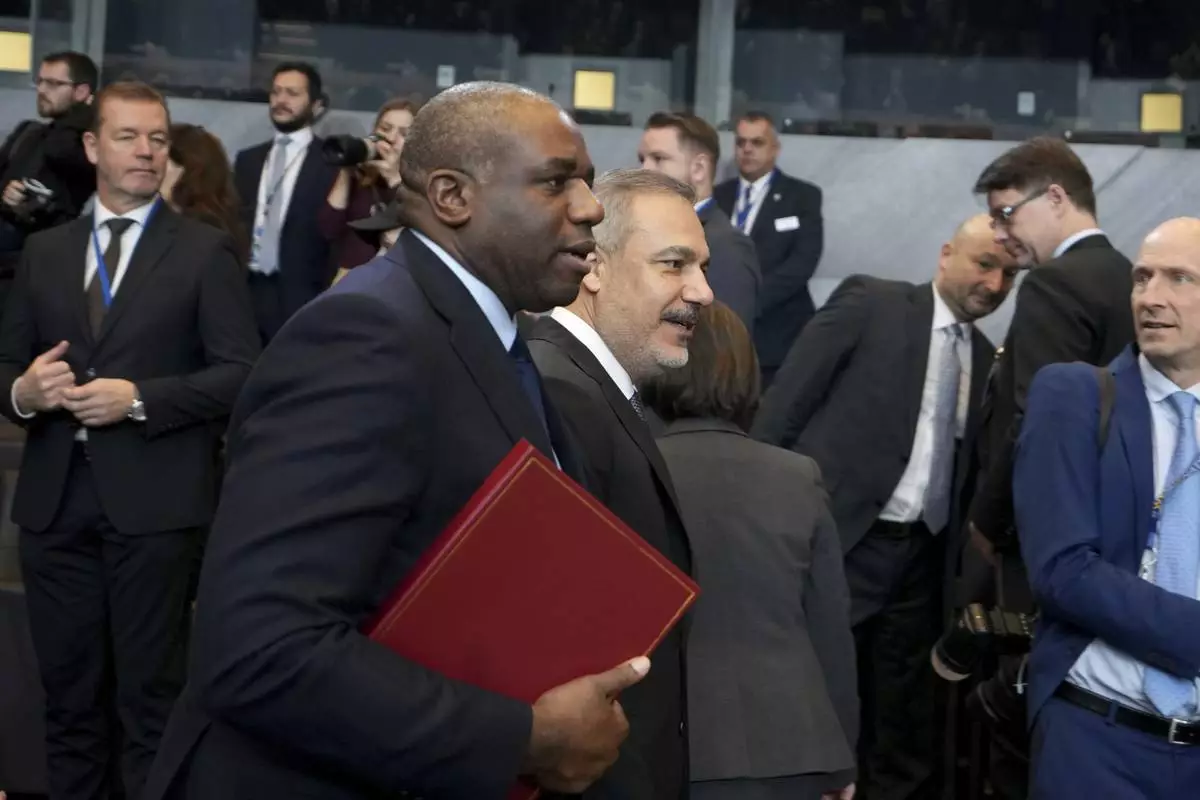
British Foreign Secretary David Lammy, left, walks with Turkey's Foreign Minister Hakan Fidan during a meeting of NATO foreign ministers at NATO headquarters in Brussels, Wednesday, Dec. 4, 2024. (AP Photo/Virginia Mayo)
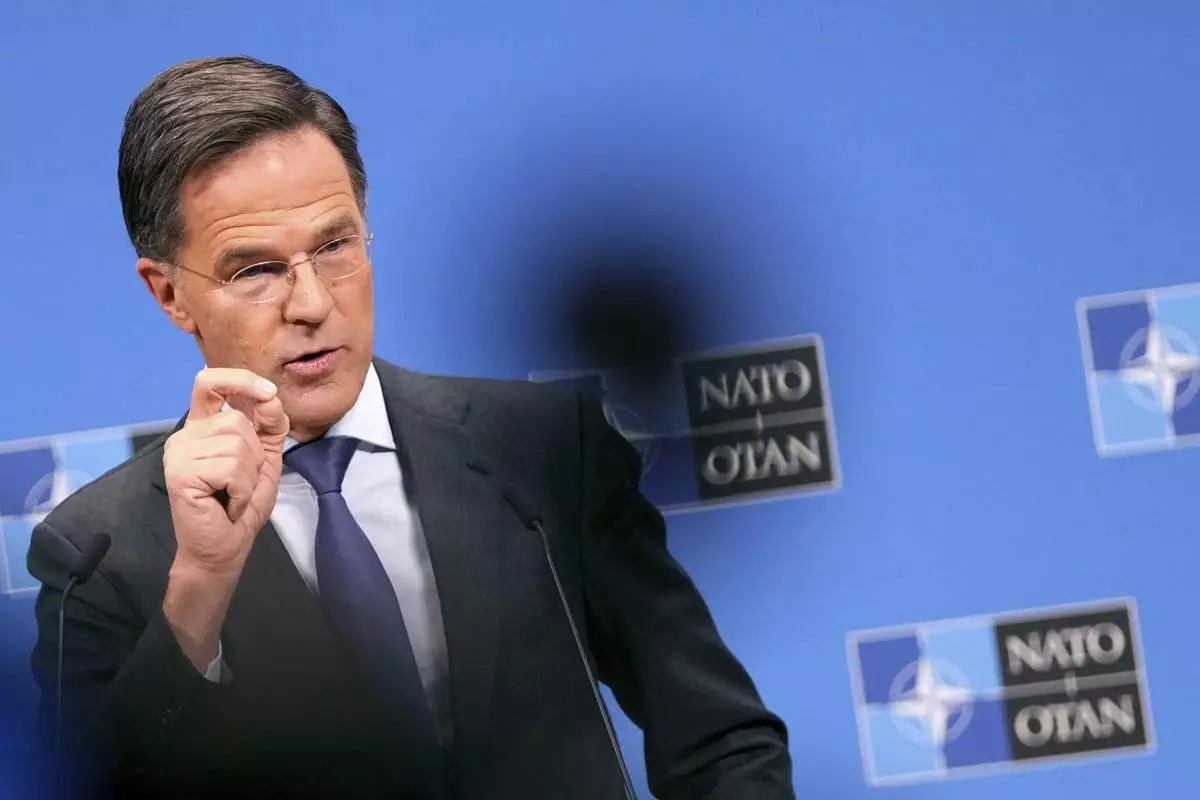
NATO Secretary General Mark Rutte speaks during a media conference at the conclusion of a meeting of NATO foreign ministers at NATO headquarters in Brussels, Wednesday, Dec. 4, 2024. (AP Photo/Virginia Mayo)
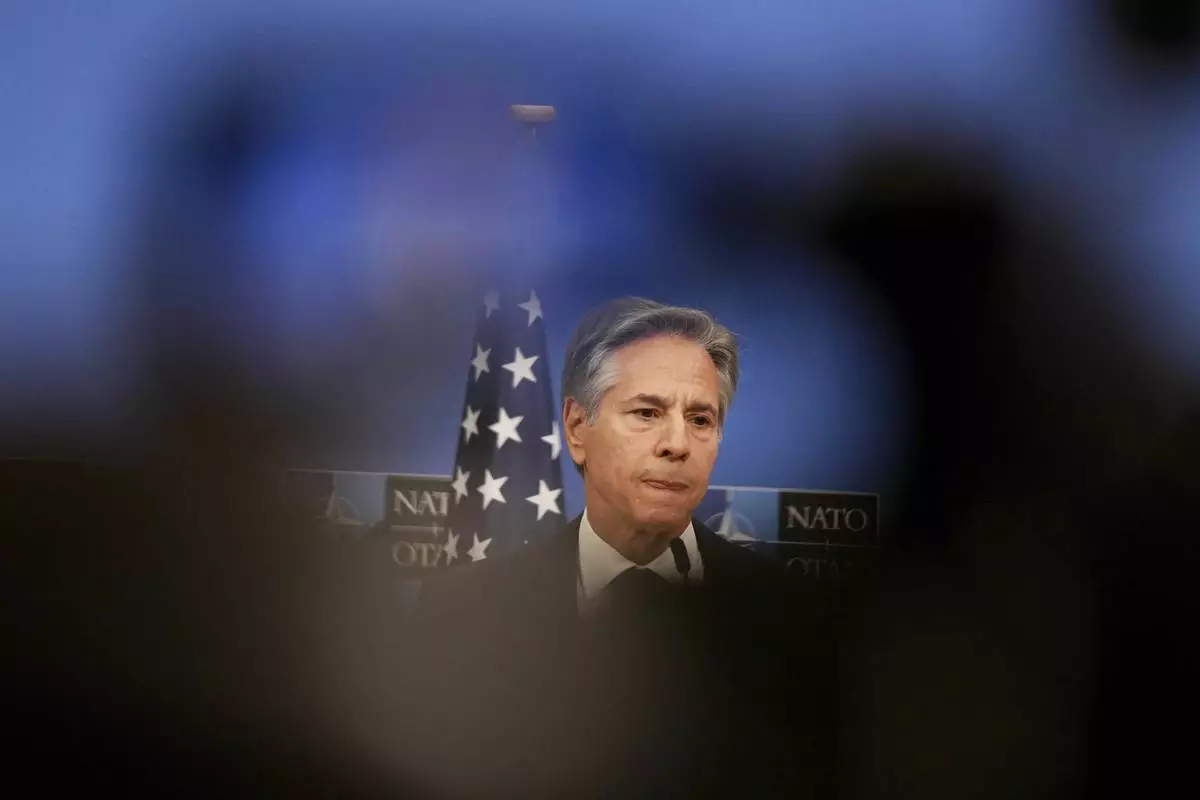
United States Secretary of State Antony Blinken speaks during a media conference at the conclusion of a meeting of NATO foreign ministers at NATO headquarters in Brussels, Wednesday, Dec. 4, 2024. (AP Photo/Virginia Mayo)
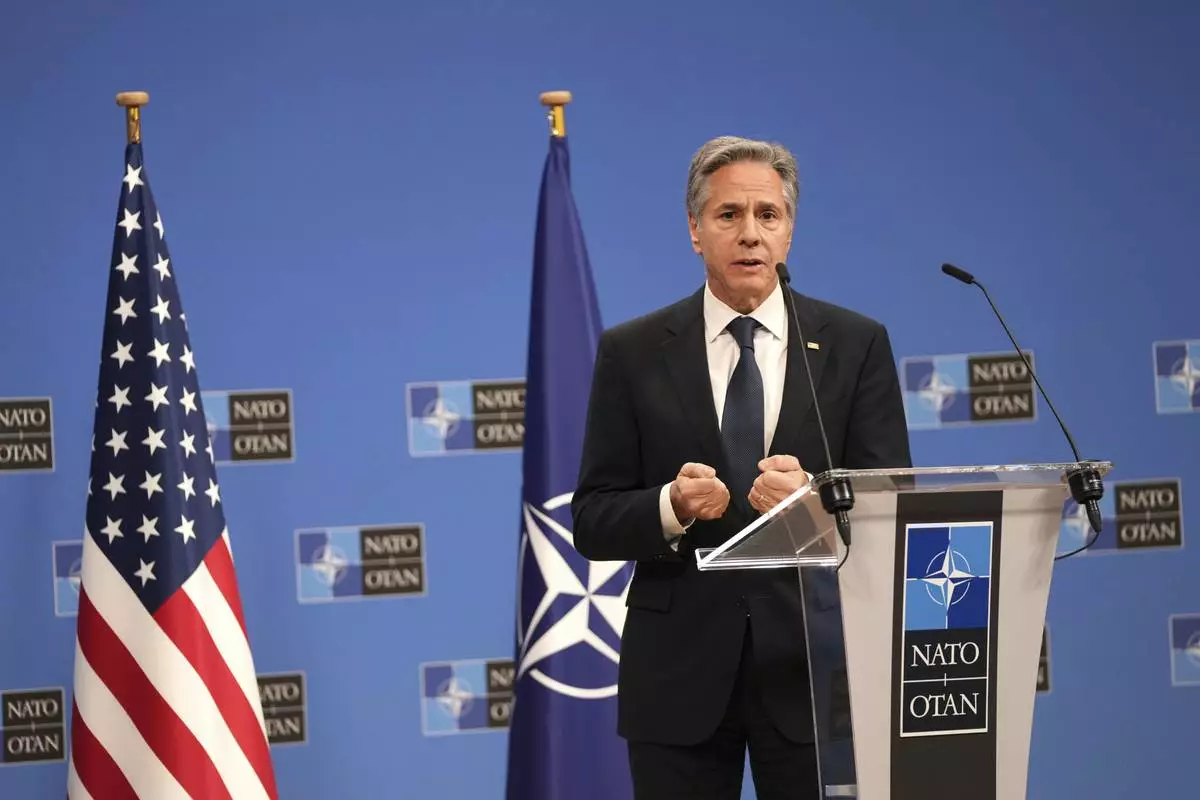
United States Secretary of State Antony Blinken speaks during a media conference at the conclusion of a meeting of NATO foreign ministers at NATO headquarters in Brussels, Wednesday, Dec. 4, 2024. (AP Photo/Virginia Mayo)
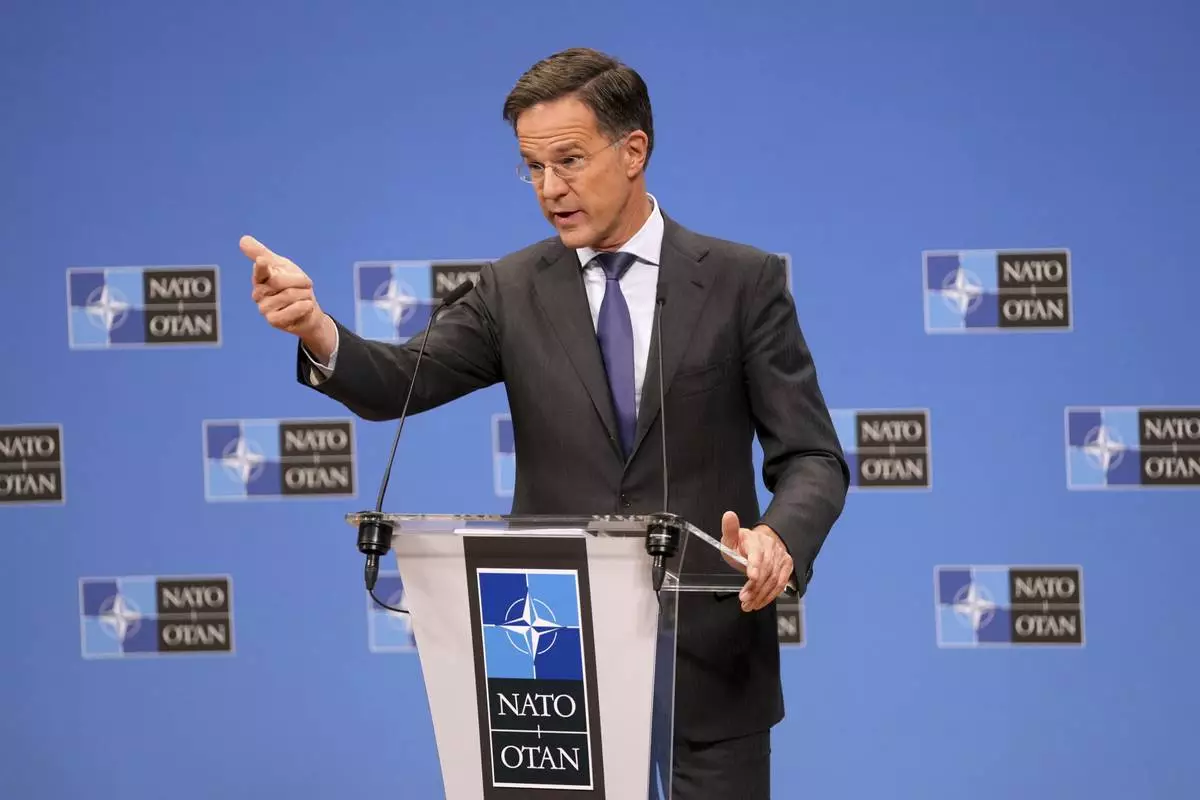
NATO Secretary General Mark Rutte speaks during a media conference at the conclusion of a meeting of NATO foreign ministers at NATO headquarters in Brussels, Wednesday, Dec. 4, 2024. (AP Photo/Virginia Mayo)
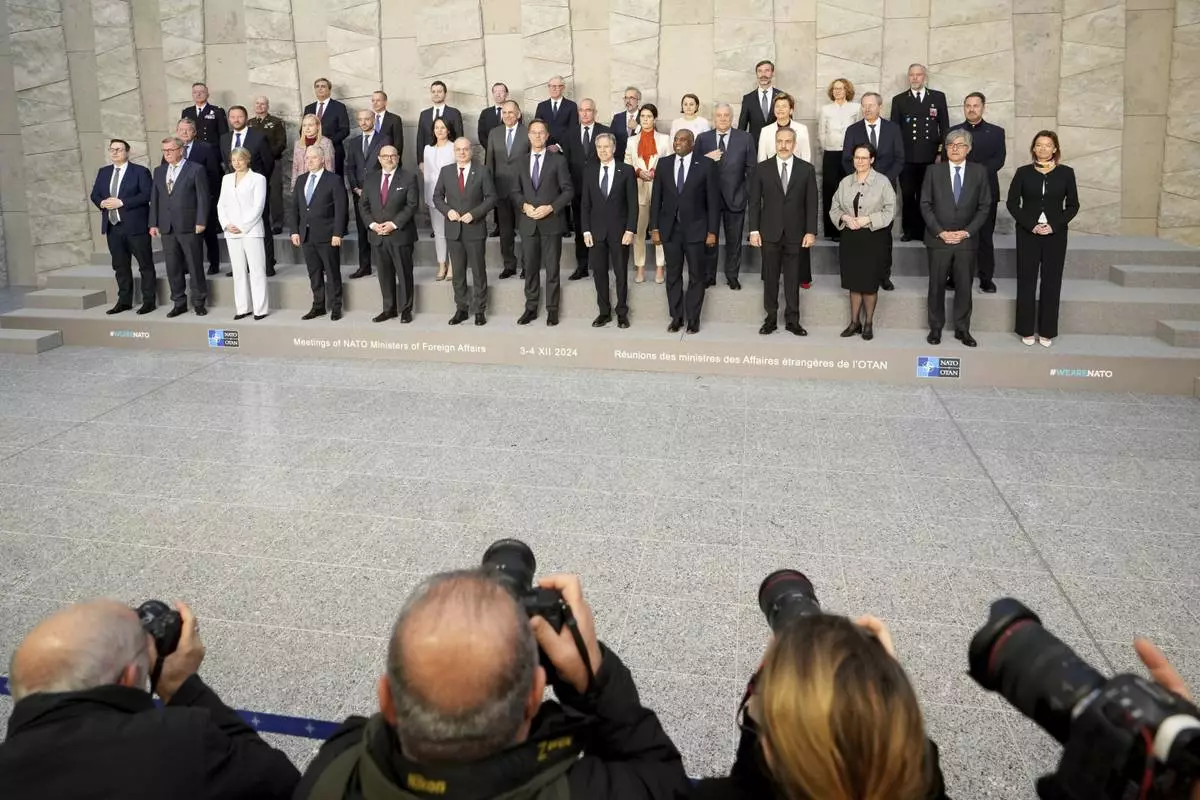
NATO foreign ministers pose for a group photo during a meeting of NATO foreign ministers at NATO headquarters in Brussels, Wednesday, Dec. 4, 2024. (AP Photo/Virginia Mayo)
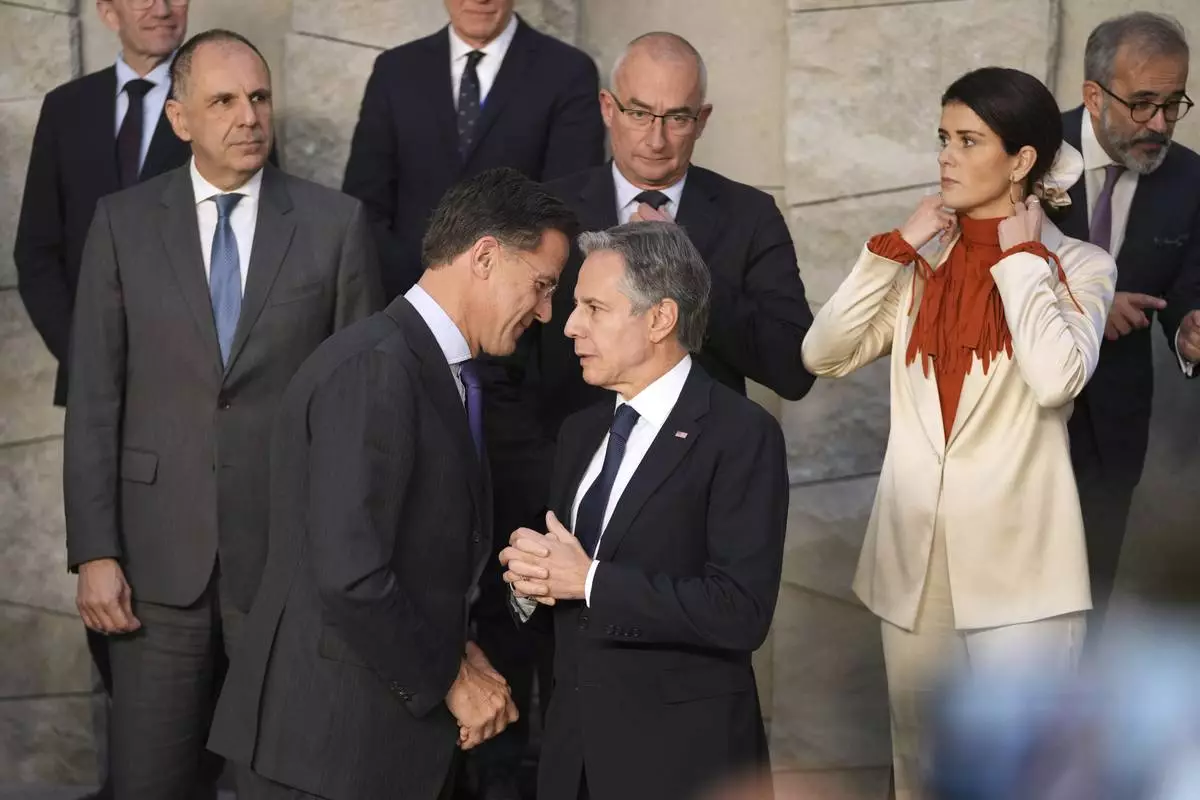
United States Secretary of State Antony Blinken, front center, speaks with NATO Secretary General Mark Rutte during a group photo at a meeting of NATO foreign ministers at NATO headquarters in Brussels, Wednesday, Dec. 4, 2024. (AP Photo/Virginia Mayo)
The Supreme Court is set to hear arguments on Wednesday in just its second major transgender rights case, a challenge to a Tennessee law that bans gender-affirming care for minors.
The nation’s top court will be weighing whether Tennessee’s law violates the equal protection clause of the 14th Amendment, requiring that people in similar circumstances be treated the same under the law. Both sides in the case claim they are acting to protect minors from harm.
At least 26 states have adopted laws restricting or banning such care for minors, and most of those states face lawsuits.
Here's the latest:
Multiple bills related to transgender youth have already been filed in Texas’ legislature ahead of its session next year.
The proposals include a bill that would make it easier to sue providers of gender-affirming medical care for children.
Other bills include restrictions on which public restrooms transgender people can use, and limits on how topics related to sexual orientation and gender identity are taught in schools.
At least 26 states have adopted laws banning gender-affirming medical care for transgender minors. Federal judges in Arkansas and Florida have struck down the bans in those states as unconstitutional, though an appeals court has put the Florida ruling on hold. The ban in New Hampshire is to take effect on Jan. 1.
Several Democratic-controlled states have policies seeking to protect access to gender-affirming care.
Additionally, at least 24 states have bans barring transgender women and girls from competing in certain women’s and girls’ sports competitions. And at least 11 have laws barring transgender women and girls from using girls’ and women’s bathrooms at public schools — and in some cases, in other government facilities.
Most laws are reviewed and upheld under the lowest level of scrutiny, known as rational basis review. Indeed, the federal appeals court in Cincinnati that allowed the Tennessee law to be enforced held that lawmakers acted rationally in adopting the law to address the risks they perceived in gender-affirming care for minors.
But when discrimination is present, judges take a closer look.
Sex discrimination gets heightened scrutiny, which requires states to identify an important objective and show that the law helps accomplish it. Racial discrimination, not at issue here, is reviewed under strict scrutiny — the highest level — and laws rarely survive such a demanding examination.
Roberts and Gorsuch joined the court’s liberal justices in the 2020 workplace discrimination case won by LGBTQ+ plaintiffs. Three conservative justices, Samuel Alito, Brett Kavanaugh and Clarence Thomas, dissented.
If the parties challenging the Tennessee law hope to win, they need at least two conservative justices on their side, along with the three liberal members of the court. Barrett has no track record on transgender issues, although she votes with the other conservatives in most of the high-profile cases.
The Supreme Court almost always issues its decisions by early summer, usually before the end of June. The transgender health case could be one of the last cases decided, which is typical of highly contentious issues. One additional potential cause for delay is the Trump administration could weigh in soon after he takes office. It’s not clear how that might affect the case.
Chase Strangio will be the first openly transgender attorney to argue before the nation’s highest court, representing families who say Tennessee’s ban on health care for transgender minors leaves their children terrified about the future.
Strangio will bring months of intense legal preparation to the case as well as hard-won lessons from his own experience.
“I am able to do my job because I have had this health care that transformed and, frankly, saved my life,” he said. “I am a testament to the fact that we live among everyone.”
Strangio grew up outside of Boston and came out as trans when he was in law school. Now 42, he’s an American Civil Liberties Union attorney whose legal career has included representing former Army intelligence analyst Chelsea Manning, challenging a ban on transgender people serving in the military and helping win an LGBTQ+ worker-discrimination case at the Supreme Court. He’s also the father of a 12-year-old, the son of a father who supports Trump, and has a close relationship with his Army veteran brother.
▶ Read more about Strangio and his history as a transgender advocate
The Supreme Court’s only other major case on transgender rights was in 2020 when the court ruled that workplace discrimination against LGBTQ+ people was sex discrimination in violation of the federal civil rights law commonly known as Title VII.
The court concluded in separate cases involving a gay man and a transgender woman that they were discriminated against because of their sex. Justice Neil Gorsuch, an appointee of Donald Trump’s in his first term in the White House, wrote the 6-3 opinion for the court. Chief Justice John Roberts was the only other conservative member of the court in the majority.
The nation’s top court will be weighing whether Tennessee’s law violates the equal protection clause of the 14th Amendment, requiring that people in similar circumstances be treated the same under the law. Both sides in the case claim they are acting to protect minors from harm.
Transgender attorney Chase Strangio will represent families who say Tennessee’s ban leaves them terrified for the future and that access to this kind of care is life-saving.
Tennessee, meanwhile, will argue before the Supreme Court that treatments like puberty blockers and hormones carry risks for young people and its law protects them from making treatment decisions prematurely.
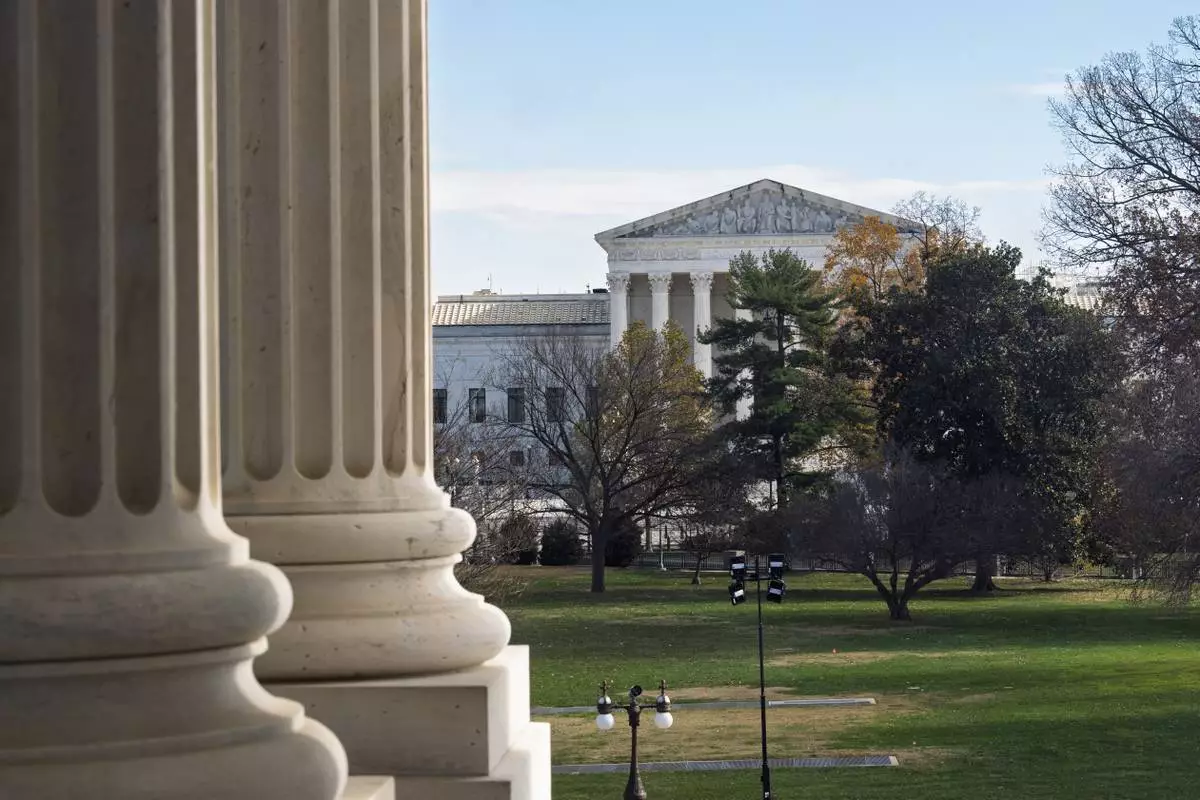
The Supreme Court is framed by the columns of the Capitol in Washington, Tuesday, Dec. 3, 2024. T (AP Photo/J. Scott Applewhite)

FILE - Advocates gather for a rally at the state Capitol complex in Nashville, Tenn., to oppose a series of bills that target the LGBTQ community, Feb. 14, 2023. (AP Photo/Jonathan Mattise, File)
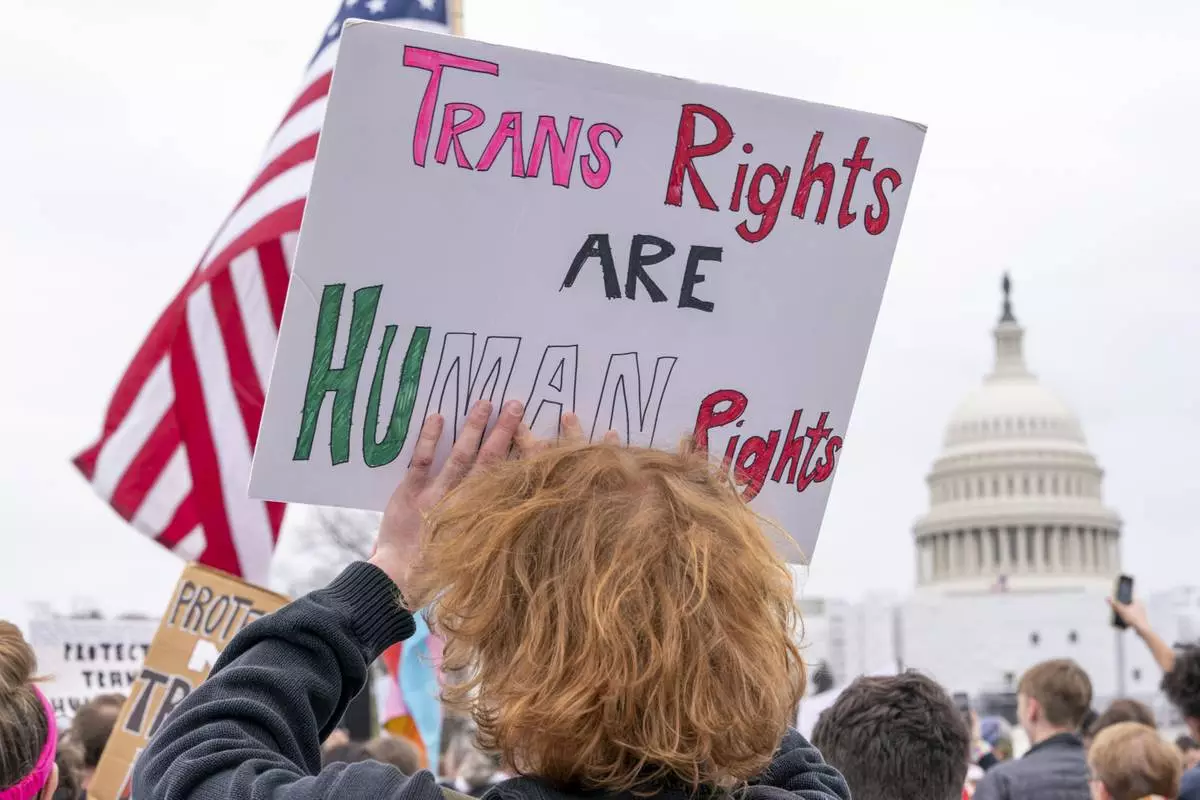
FILE - People attend a rally as part of a Transgender Day of Visibility, Friday, March 31, 2023, by the Capitol in Washington. (AP Photo/Jacquelyn Martin, File)
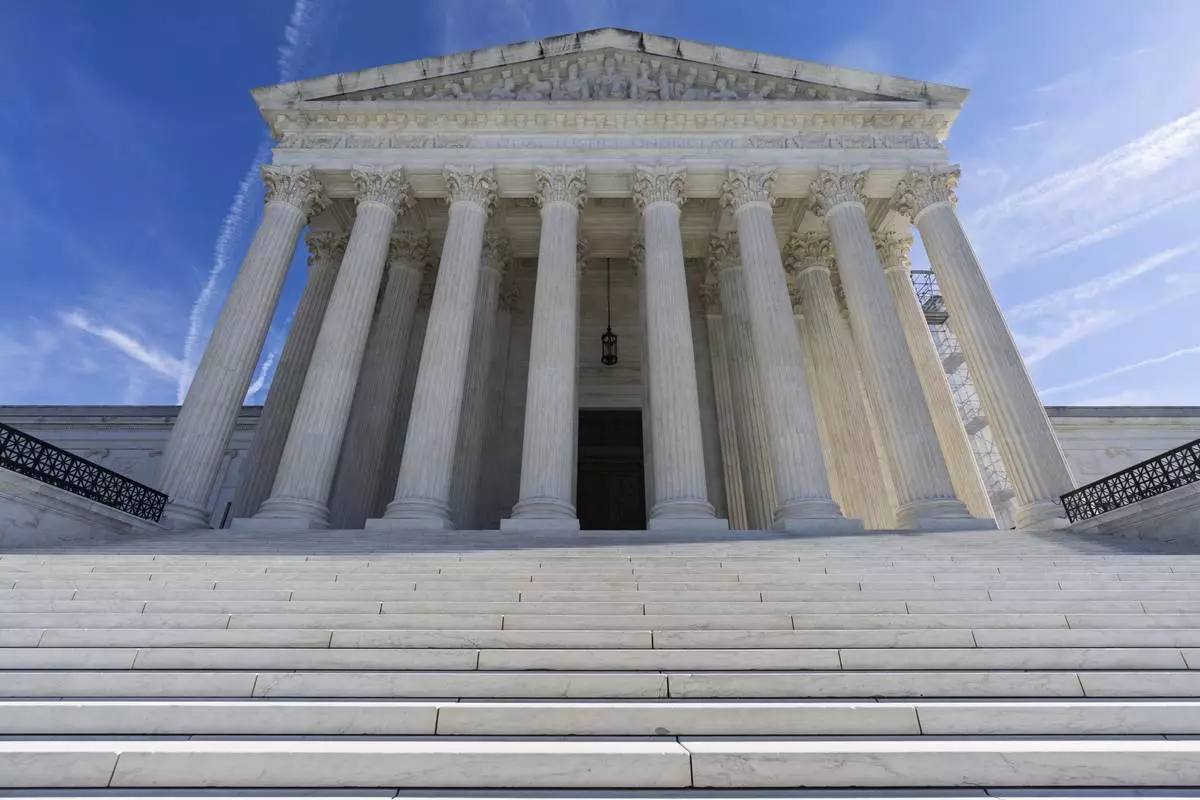
FILE - The Supreme Court is seen in Washington, Nov. 2, 2024. (AP Photo/J. Scott Applewhite, File)












